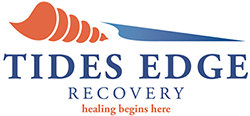Mental health problems, like anxiety, depression, and addiction, often start with behavioral concerns. There are several ways to treat mental health issues, but the most effective route is one-on-one talk therapy. The techniques used when someone enters individual therapy can vary. Still, two of the most popular and effective forms of treatment include a cognitive-behavioral therapy program (CBT) and its close cousin, dialectical behavior therapy (DBT). As a result, you need to understand the difference between the two. Doing so can help you better understand your treatment.
Both DBT and CBT are effective in treating mental health conditions, but they work in different ways. DBT helps people learn how to control their emotions, while a cognitive-behavioral therapy program helps people change the way they think. If you’re struggling with a mental health condition, it is important to find out which treatment is right for you.
Remember that both therapies are highly beneficial. However, some people may react to one treatment better than the other. At Tides Edge Detox, our detox programs include several different therapeutic approaches including these.
CBT: Cognitive Behavioral Therapy
Cognitive-behavioral therapy near Jacksonville operates on the psychological concept of behaviorism. This idea assumes that all people are born with a blank slate and that all behavior is learned. As a result, a person is not born anxious, depressed, or risk-taking. Instead, they learn these behaviors from their environment. For example, they may develop anxiety due to a difficult childhood with struggling parents. Or they may become risk-taking as a way to get attention. Whatever the case, all human behaviors, including addiction, are learned.
However, cognitive-behavioral therapy argues that these behaviors can be unlearned. The core of this process focuses on identifying negative thoughts and replacing them with positive ones.
These thoughts often trigger a negative feedback cycle that may worsen your anxiety and depression. CBT teaches you how to identify these thoughts as they occur. You also learn coping mechanisms to eliminate these adverse patterns of behavior. In this way, you can learn how to love yourself and feel more positive about your life. So, what about the second half of the CBT vs. DBT debate?
DBT: Dialectical Behavior Therapy
Did you know that DBT is an off-shoot of CBT initially created to help those with borderline personality disorder? In fact, dialectical behavioral therapy near Jacksonville uses CBT concepts to teach you how to live in the moment and manage your stress. People with borderline personality disorder often struggle to handle life’s demands because they never learned these coping mechanisms.
As a result, many people with this disorder turn to self-medication. Unfortunately, a large number get caught in the cycle of substance abuse. For example, alcohol may seemingly manage stress or make communication easier. Sadly, these individuals are only worsening the problem. With dialectical behavioral therapy, you can learn how to improve your life and your emotional state. Critical factors in this treatment include the following ideas:
- All elements of a person’s life are connected
- Change is a constant in all our lives
- Opposites need to work together to find the truth
- Self-acceptance is crucial to recovery
DBT goes through one of three settings. These include group, individual, and phone therapy. During these sessions, you will learn how to recognize your positive abilities, enhance your behavioral traits, boost your cognitive skills, and become more mindful. In this way, you’ll learn how to handle distress better and enhance your interpersonal skills.
Understanding the Difference Between CBT and DBT
In the CBT vs. DBT debate, you typically want to go with the least-specialized option first. For example, those who get DBT need ADHD, eating disorders, bipolar disorder, generalized anxiety, PTSD, major depression disorder, or borderline personality disorder.
However, both care options provide many benefits. For example, CBT is an excellent tool for identifying abuse triggers. It may also help with negative thoughts about drug abuse. That said, co-occurring disorders may complicate your addiction recovery. In these scenarios, DBT is likely your best choice. At Tides Edge Detox, we offer these therapies and others to help our clients, such as:
- Group therapy
- Individual therapy
- Yoga therapy
Let Tides Edge Detox Help You Recover
If you need help in the CBT vs. DBT debate, please contact us at Tides Edge Detox. We provide general detox services and specific detox care to help you recover. No matter the addiction you or a loved one is facing, we have a detox program that can help, such as:
- Alcohol detox
- Bath salts detox
- Benzo detox
- Cocaine detox
- Fentanyl detox
- Heroin detox
- Methamphetamine detox
- Opiate detox
- Opioid detox
- Prescription drug detox
Call 866.723.3127, or contact us online today to learn more and to get started on your path of recovery. Take a virtual tour to get a feel for our facility.









